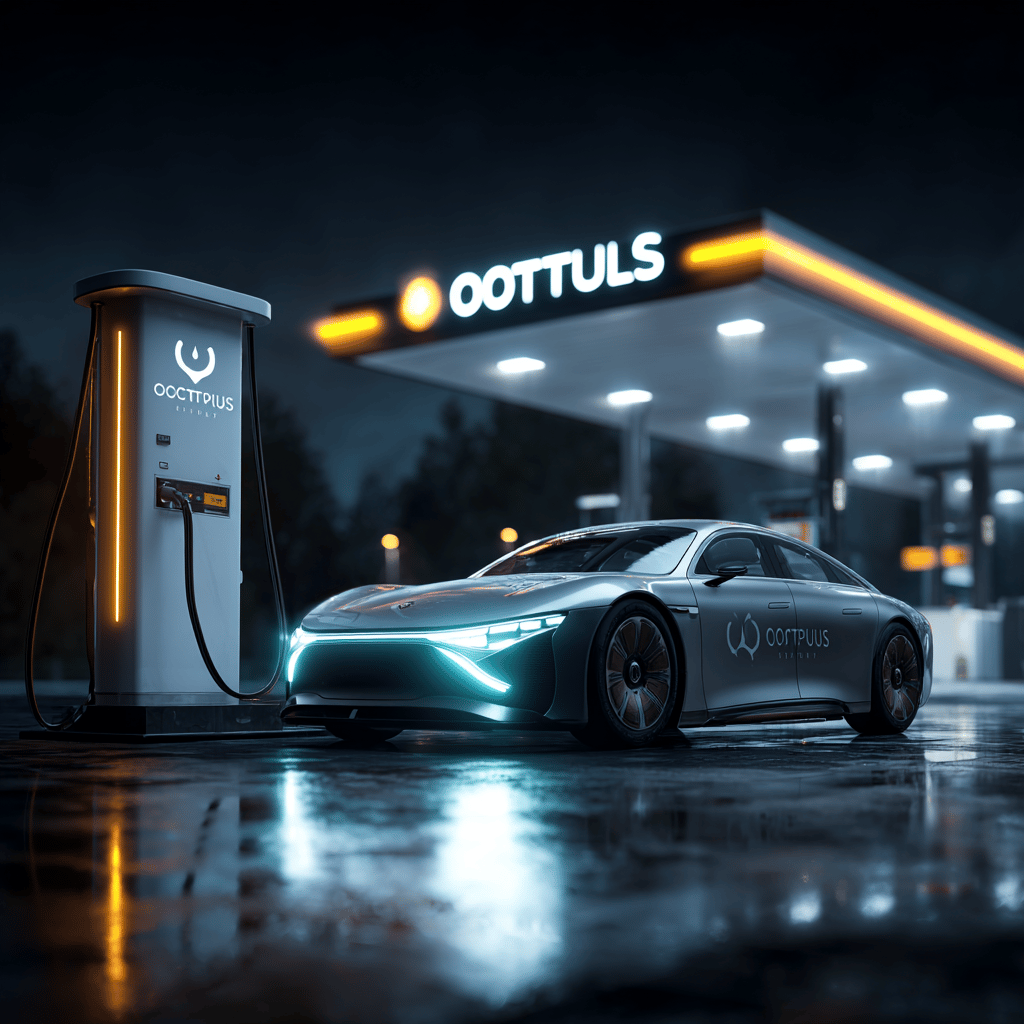Octopus Energy, the United Kingdom’s largest and most rapidly expanding energy supplier, has taken a significant step into the electric vehicle (EV) hardware market by unveiling its first proprietary EV charger, aptly named the **Octopus Charge**. This new device has been engineered specifically to integrate smoothly with the company’s **Intelligent Octopus Go tariff**, a plan that provides customers with access to substantially reduced electricity prices during overnight hours — a period that is particularly convenient for EV charging. By aligning hardware with tariff structures, Octopus aims to create a seamless ecosystem in which customers can both save money and contribute to a more sustainable energy landscape.
The company has not only designed and manufactured the charger internally but has also opted to support it with the assurance of a three-year warranty. In order to meet different consumer preferences, Octopus is offering two distinct versions of the Octopus Charge. The first is a **tethered model**, priced at £999 (approximately $1,300), which comes equipped with a built-in 5‑meter charging cable that is permanently attached for added convenience. Alternatively, there is an **untethered model** available at £899 (roughly $1,200), which does not include a fixed cable and instead allows drivers the flexibility of using any compatible charging lead of their choosing. When installation expenses are factored in — an unavoidable cost common to nearly all home chargers — these prices prove to be competitive within the UK market. For existing Octopus customers, the value proposition is even stronger, since the entire installation, servicing, and long-term support process is handled directly by Octopus Energy rather than outsourced to third parties.
Over the past several years, Octopus has carved out a prominent reputation in the UK energy market for its innovative approach centered around sustainability and cost-effectiveness. By leveraging affordable renewable energy sources and adopting advanced pricing models, the company has managed to keep consumer costs lower despite the volatility of global wholesale energy prices, which have soared dramatically in recent years. Among its standout offerings are two particularly popular tariffs: the **Octopus Agile plan**, which adjusts rates every thirty minutes in line with wholesale market fluctuations, and the **Intelligent Octopus Go tariff**, which provides EV owners with the opportunity to charge their vehicles each night for a six‑hour window at a flat, substantially discounted rate of 7 pence per kilowatt-hour — the equivalent of about 9 US cents. For many drivers, this translates into dramatically reduced fueling costs compared to traditional petrol, and some households have even found creative ways to effectively access electricity at little to no cost when paired with these plans.
Nevertheless, the Octopus Charge is designed foremost with current Octopus Energy customers in mind. For those who are not already using the provider’s electricity services, the appeal may appear more limited, unless they are prepared to switch suppliers to take advantage of the integrated benefits. On first glance, this hardware launch could be perceived as a strategic maneuver by Octopus to lock in customers long-term by providing both the energy and the infrastructure required to consume it. Yet the company has emphasized that the charger itself is **fully compatible with other UK energy suppliers**, so owners are not bound to remain with Octopus should they decide to switch in the future. Christina Hofmann, a spokesperson for the company, explained in correspondence with *The Verge* that in an ideal scenario, any energy supplier would operate its own **Open Charge Point Protocol (OCPP) platform**, enabling them to assume direct control of the hardware. In instances where a supplier does not maintain such a platform, users can still configure the device in **Plug and Charge mode**, and rely on scheduling features directly via the vehicle’s onboard system instead. This flexibility ensures that the Octopus Charge will not lose its utility even outside of the Octopus ecosystem.
While a number of third-party EV chargers are already capable of integrating with the Intelligent Octopus Go tariff, the use of Octopus’ proprietary charger promises to remove layers of complexity from the process. Historically, Octopus has facilitated compatibility by managing connections through external APIs, whether interfacing with a particular vehicle platform or the software embedded in a third-party charger. Such systems can on occasion prove inconsistent or give rise to technical hiccups. By providing its own hardware, Octopus is seeking to eliminate these inefficiencies and create a user experience that is considerably smoother, more reliable, and ultimately better optimized for the company’s own tariff structure.
According to Octopus, the new **Octopus Charge** will be released for general retail availability to a broad segment of EV drivers later in the year. However, those who obtain a vehicle through **Octopus Electric Vehicles**, the company’s leasing division, are being granted early access to the new hardware as part of their package. For all other interested customers, Octopus has opened a pre‑registration portal on its official website, allowing individuals to express interest and receive updates about future availability. This staged rollout appears designed not only to build anticipation but also to ensure that early adopters — many of whom are already deeply embedded within Octopus’ ecosystem — can provide real‑world feedback before the charger enters mass distribution.
By developing its own EV charger, Octopus Energy has reinforced its overarching strategy of uniting sustainable supply with smart consumer technology. For drivers looking for an effortless and forward‑thinking way to keep their vehicles charged, while also saving significantly on energy costs, the Octopus Charge may well set a new standard for home charging within the UK’s fast‑evolving EV landscape.
Sourse: https://www.theverge.com/news/769962/octopus-energy-octopus-charge-ev-charger



